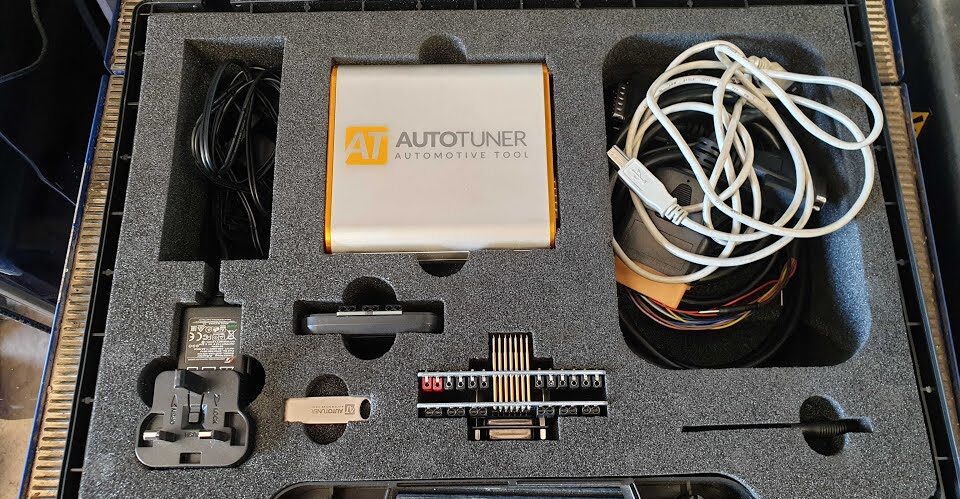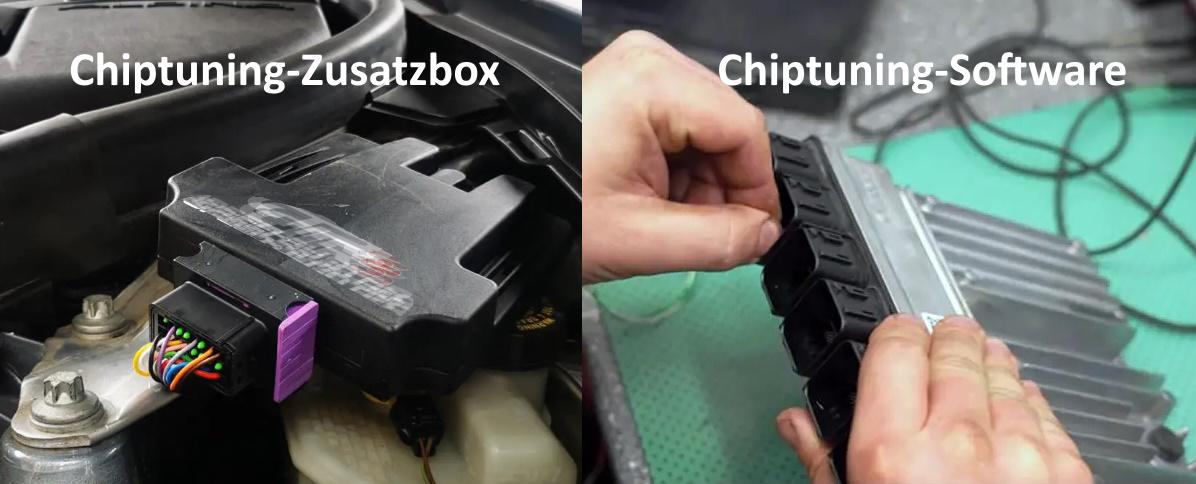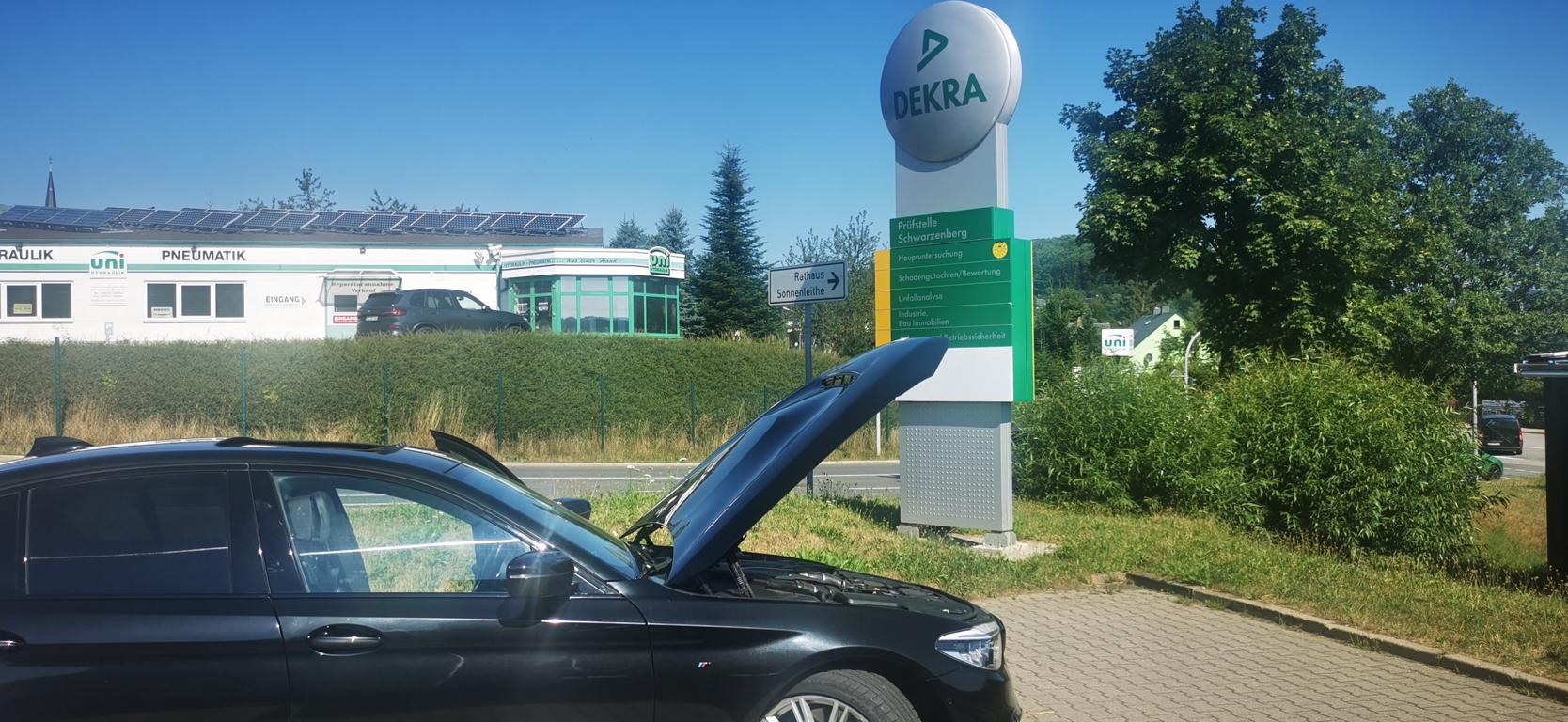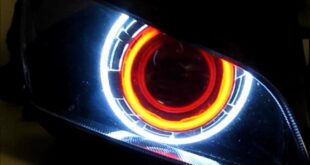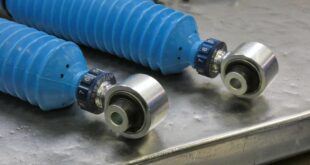The majority of tuners who want to optimize their vehicle strive for more performance and rely on chip tuning. The practice of chip tuning involves a subsequent change the originally defined control parameters in the electronic engine control in order to achieve an increase in engine performance. There are three main factors affecting the performance of the engine significantly influence: Capacity, number of revolutions and Combustion chamber filling (medium gas pressure). Successful adjustment of these parameters depends heavily on the tuning of the various components. Possible structural changes can include machining the cylinders or intake ports, using lighter pistons or sports camshafts, retrofitting a turbocharger and using a sports air filter.
Compliance with emission regulations
Modern engines have to meet increasingly strict emission regulations with regard to exhaust and noise levels. Structural measures usually achieve without an adjustment of the timing and injection no acceptable results or they even worsen the exhaust gas and noise levels. The result is exhaust gas behavior that no longer conforms to regulations.
- Modifications to the intake manifold and the use of sports air filters can affect the exhaust gas and noise behavior and require a Proof and acceptance obligation.
Software optimization or additional control unit
Chip tuning, which includes adjusting the engine maps, is one of the simplest and usually cheapest methods of increasing the performance of modern vehicles. By transferring modified maps to the standard engine control unit, the elasticity can be improved and the response behavior of the vehicle can be optimized. Incidentally, the name chip tuning comes from an old method in which a chip on the circuit board of the control unit was replaced for the increase in performance. However, a software update by the vehicle manufacturer often ensures that the chip tuning software is overwritten and thus deleted.
Software optimization or additional control unit? Both variants enable an improvement in elasticity and an optimization of the response behavior!
The situation is different with the additional control unit. The original software is retained. A separate control unit is connected to the series engine control unit in order to send modified (manipulated) map data to the ignition and injection electronics. Such additional electronics (chip tuning boxes) are particularly in demand because they guarantee reliable signal generation and the maintenance of the engine control's own protective functions. However, caution should be exercised, as the number of dubious providers in this area is constantly increasing!
An modification acceptance is necessary!
If you install a performance increase without documents, then the operating license of the vehicle expires. The following criteria should therefore be met by providers of performance upgrades, since the effects on emission and noise levels require a permit or a Teilegutachten require:
- Submission of proof of performance measurements, including compliance with all relevant regulations such as exhaust and noise behavior as well as corresponding documents such as parts certificates.
- Ensuring a certified quality management system.
- Providing engine, transmission and drivetrain warranty service.
After the examination by an officially recognized expert (aaS), the changed performance data must be immediately transferred to the vehicle documents and the vehicle insurance company must be informed. Info: An increase in performance leads to a higher load on the vehicle, not only on the engine, but also on the components of the transmission, the cooling system, the chassis and the brakes. Therefore, for tuning without hardware changes, an increase of at most 20% of power or torque recommended.
Proof of admissibility is required!
Also various additional control units that "only" do that throttle response are to be improved require proof of admissibility. Evidence of simple electromagnetic compatibility is not sufficient!
And finally ... For conversions without Approval or Teilegutachten goes out approval of the vehicle. For this reason, one should make sure that providers of performance upgrades have a certified quality management system and guarantee services for the engine, transmission and drive. In addition, evidence of performance measurements including compliance with all relevant regulations (e.g. exhaust gas/noise behavior) and corresponding documents (e.g. parts certificates) should be available. Measures on the engine to increase performance must always be checked, approved and included in the vehicle documents. Since the operating risk under insurance law increases due to the additional service, you should definitely report the change to the insurance company so that you don't have any problems with them in the event of a claim.
Tuning a diesel vehicle with an additional control unit?
- It is important to note that this intervention in noise and exhaust emissions entails a registration requirement. For this reason, the provider should be able to provide appropriate evidence for all regulations concerned in order to modification acceptance to be carried out by an expert or examiner and then to be able to adapt the vehicle documents.
What to consider when taking out insurance?
- When there is an increase in performance, the operational risk changes, which means that it is important to report this to the insurance company in order not to lose coverage. It should be noted that such a tuning measure not necessarily leads to higher insurance premiums. However, if there is a case of damage with personal injury and the vehicle's operating license has expired due to illegal tuning, there can be a risk of fines and points as well as claims for recourse from the insurance company.
Of course, that wasn't the end of it.
tuningblog.eu has a lot of other articles on the subject of auto & tuning in stock. Do you want to see them all? Just click HERE and look around. But also planned changes in the law, violations in road traffic, current regulations in the field of STVO or on the subject inspection we would like to inform you regularly. Everything you can find in the category "Test sites, laws, offenses, information". Click on one of the following posts!
other related posts
|
Preventing fuel theft: This is what commercial vehicle operators should know |
 tuningblog.eu Your magazine about tuning the car
tuningblog.eu Your magazine about tuning the car
